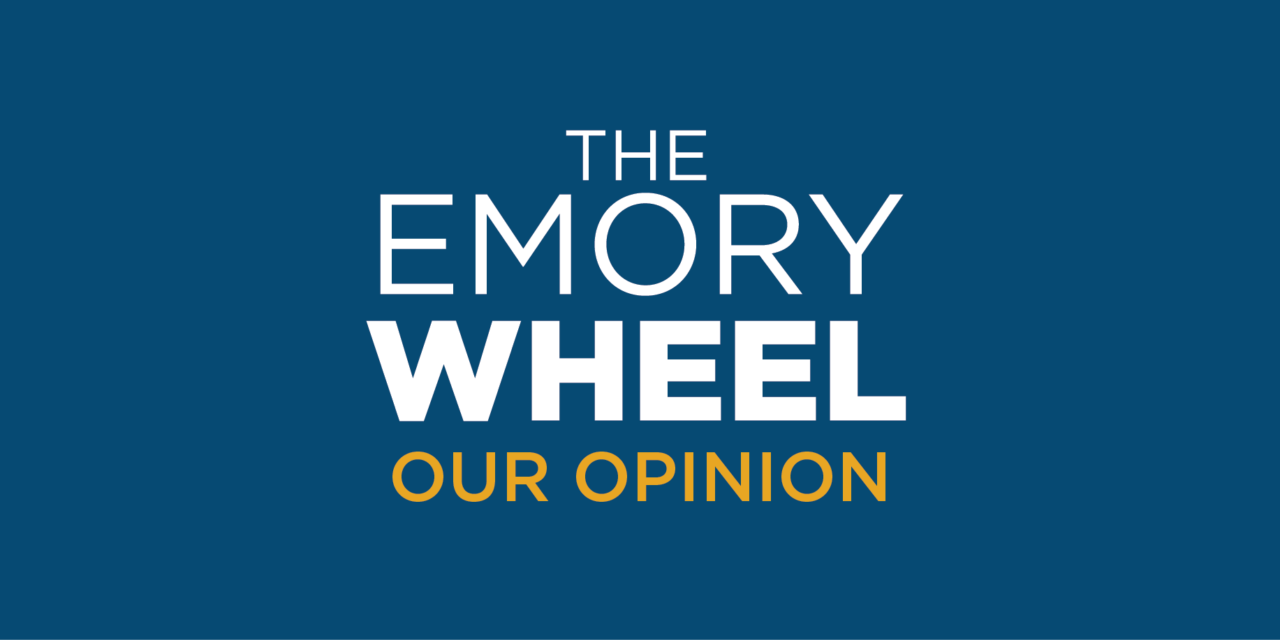It’s been a challenging year for the Emory community. We’ve received negative media attention on a number of issues, but the end of the 2012-2013 academic year is a time to discuss our true values as a higher education institution, as well as reflect on both the good and the bad that the University has faced. We should now aim to move forward.
Last summer, Emory released the results of an internal investigation revealing that officials had falsified our admissions data for more than a decade. This was followed by the department changes announced in the fall, which led to protests across campus and continues to spark controversy among faculty and students. Emory made local and national news once again this semester after University President James W. Wagner published a column in Emory Magazine citing the Three-Fifths Compromise as an example of compromise for the greater good. Students also received some heat after controversial comments on an online episode of “The Dooley Show” as well as several instances of cheating in student government elections.
However, negative media attention does not – and should not – mean that the education we receive here is any less significant or valuable. It is important that we learn from our mistakes.
One instance of this that has already occurred is the discussions about racism that have begun since the publication of Wagner’s column. For example, several groups held a “Rally Against Racism,” the first step in campus-wide discussions about the issue. We are glad that the Emory community is able to come together in difficult times to try and improve campus life, rather than focusing only on the negatives.
That being said, it is important to explore some of the more positive achievements of the University this year, some of which might have been overshadowed by the controversy that Emory has experienced this year. Emory completed fundraising for its multi-year Campaign Emory. Applications to Emory continue to rise. The women’s swimming and diving team placed first nationally for the fourth year. An Emory faculty member, Natasha Trethewey, became the U.S. Poet Laureate. The list goes on.
The students do not have control over the administration. The events this year were out of our control. There was nothing we could do to stop them. And these events – the ones we could not stop – reflect negatively on us as Emory students or graduates. Many graduating seniors may be worried about having Emory attached to their name when trying to get a job or get into a graduate school. Sadly, there is nothing you can do to erase the negative attention Emory has received this year. But what you do have control over is the impression you make moving forward. Every time an Emory student does some good in the “real world” we improve the Emory name a little bit. If an employer has had a good experience with an Emory student, they will be more likely to look favorably on Emory when hiring in the future. In this small way, we as individuals, can improve the value of our degree. We encourage our graduating seniors to keep this in mind as they enter the work force and begin embarking on their various journeys.
The above staff editorials represent the majority opinion of the Wheel‘s editorial board.
The Emory Wheel was founded in 1919 and is currently the only independent, student-run newspaper of Emory University. The Wheel publishes weekly on Wednesdays during the academic year, except during University holidays and scheduled publication intermissions.
The Wheel is financially and editorially independent from the University. All of its content is generated by the Wheel’s more than 100 student staff members and contributing writers, and its printing costs are covered by profits from self-generated advertising sales.






This year should forever be know as the year of the Wagnergate scandal.